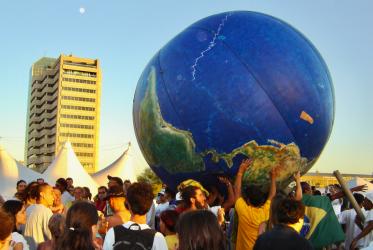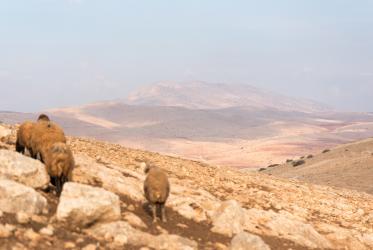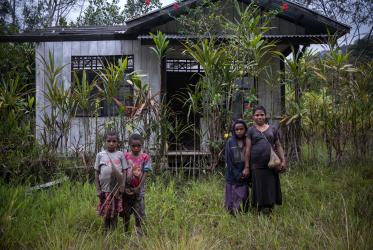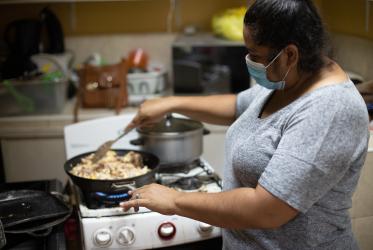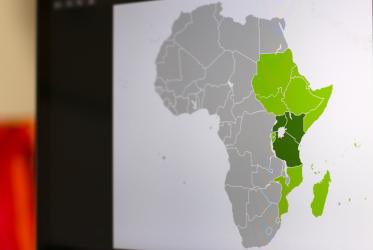Displaying 1 - 20 of 76
“They want to live without fear and constant harassment”
25 October 2023
Webinar: “Climate Justice, Food, and Faith”
09 November 2021
Nuclear weapons threat, climate change linked in many ways
17 August 2021
In Palestine, “God honored this olive tree”
12 November 2020
WCC Eco-School begins in Thailand
07 November 2019
